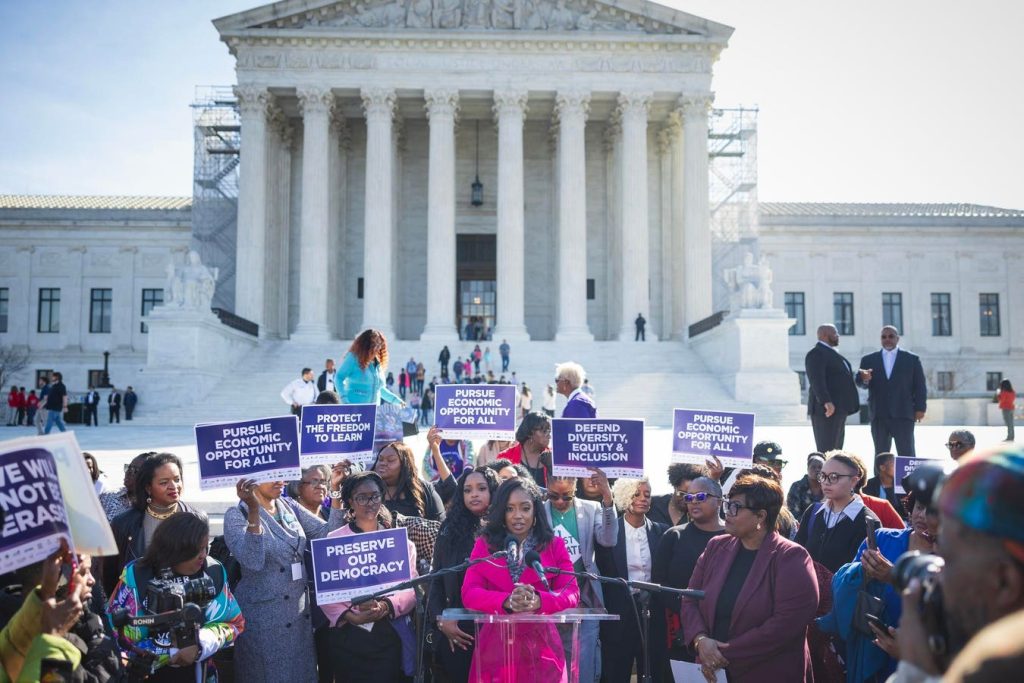The recent court ruling about the Fearless Fund blocking them from designating grant funds to Black women is just the tip of the iceberg of a broader vision certain legal activists have for society at large, one that brushes racial inequity under our collective rug. Legal cases are rarely simply about the facts being argued in a particular instance; they are often designed to prove a certain point or set a specific precedent. For those of us who believe we cannot eliminate America’s racist past without talking about race, we need to pay attention to the broader strategy being invoked here even as we mourn the loss of the Fearless Fund’s grant program.
The objective of this case is to fundamentally eliminate our ability to speak about race. There is an effort to remove racial categories and focus on a race-blind society, even as historical injustices and systemic barriers continue to affect minority groups. Eliminating discussions of the long-standing impacts of policies divided by gender and race does not address or solve these issues, and may in fact perpetuate them. The disparities faced by Black leaders, particularly Black women, are immense, with Black women receiving a significantly minimal portion of venture capital funding compared to their white counterparts.
The Fearless Fund case, filed by the American Alliance for Equal Rights, has led to a significant ruling against the organization’s grant program for Black women. Supporters of the case argue that focusing on racial categories perpetuates racism, while opponents assert that recognizing and addressing racial inequity is crucial to dismantling systemic barriers. The legal activism led by figures like Ed Blum targets affirmative action and diversity initiatives in an effort to create a race and gender-blind society. However, critics argue that this approach may do more harm than good by ignoring the underlying issues of systemic racism and discrimination.
The legal battles over issues of race and diversity are part of a broader movement spearheaded by various right-wing funders and organizations to eliminate conversations about systemic inequity. By attacking programs designed to address the chronic underinvestment in Black women, these activists are hindering progress towards a more equitable society. Scholars and activists caution against the dangers of ignoring race in discussions of policy and social change, emphasizing the importance of recognizing and challenging racist policies to create a more just and inclusive society.
The ongoing legal battles, fueled by dark money and led by prominent figures like Ed Blum, reflect a larger ideological shift towards overlooking issues of race and discrimination in the pursuit of a race-blind society. However, critics argue that this approach may perpetuate inequality and hinder progress towards true equity and inclusivity. By erasing discussions of race and systemic barriers, we risk ignoring the root causes of social injustice and failing to address the deep-seated issues that continue to perpetuate inequality in society.
Ultimately, the fight over the Fearless Fund case and similar legal battles speaks to a larger societal conversation about race, equity, and justice. As we grapple with the legacy of America’s racist past and work towards a more inclusive future, it is crucial to recognize and address the systemic barriers that continue to impact marginalized communities. By engaging in meaningful discussions about race and discrimination, we can take meaningful steps towards dismantling systemic inequality and creating a more just and equitable society for all.


